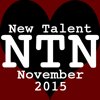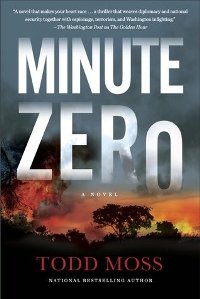
If you missed Todd Moss’s dramatic 2013 debut with The Golden Hour, you can catch up with his protagonist Judd Ryker in Moss’s second book, the recently released Minute Zero. The crimes he deals with are writ large: political chicanery, assassination, theft and corruption at the most brazen level.
Ryker is an academic working in the uneasy surroundings of the US State Department. The careerists there don’t trust him. His brief, as head of the department’s new Crisis Reaction Unit, puts him outside the bureaucracy’s normal chain of command, and in many ways he’s in over his head. What got him there was his theory that in every international crisis there is a short period – the golden hour – during which the outcome can be successfully directed toward a positive conclusion. Once a situation settles, that opportunity is lost.
This novel elaborates that idea, with the proposition that at times of extreme national disruption, there is an even briefer period of breakdown, when outcomes are uncertain and dramatic change and redirection are possible. For US diplomats, Ryker counsels, that ‘zero minute’ offers a unique opportunity.
Moss places this thriller in Zimbabwe, under the long-time leadership of fictional President Winston Tinotenda, a man in his 90s and modelled on Robert Mugabe. The president is aided by his national security advisor, General Simba Chimurenga. This pair haven’t been in power for decades without a hefty dose of corruption, violence, and political criminality. Now the country faces an election pitting Tinotenda against a formidable challenger, a woman lawyer called Gugu Mutonga.
In this situation, US goals are clear and limited, says the State Department’s Africa lead, Bill Rogerson: a safe, peaceful vote and stability into the post-election period, translated as ‘no bodies in the streets’. Tinotenda’s hold on office looks certain, but Mutonga has strong support among the country’s youth and in its southern region, and Ryker isn’t so sure the president can hold on. Disruption is in the air.
The Secretary of State asks Ryker to fly to Zimbabwe and demonstrate definitively that his crisis reaction analytics can work. But Rogerson considers Ryker a thorn in his side and is anxious to expel him from the body diplomatique. To thwart Ryker’s efforts, Rogerson colludes with the US ambassador to Zimbabwe, a rather dim political appointee counting the minutes until he can take up a new posting in London.
Meanwhile, the White House has launched a highly classified program based on rumours that pockets of high-grade uranium exist in various volatile nations, which could be weaponised without complex processing. This significant risk is another high-agenda item, and Zimbabwe has an abandoned uranium mine that may be added to the list.
Ryker’s wife Jessica is an agronomist working on African water purification projects. She provides helpful counsel to him as he negotiates these treacherous bureaucratic waters and encourages him to form a small, trusted team to work on the election problem. This team consists of two people with him in Zimbabwe, a CIA agent back home, and a helpful colleague in the British Foreign Office. Only over time do we begin to suspect that Jessica has her own dangerous agenda. There’s a lot of moving parts here anI needed to flip back through the pages once or twice, though it was easy to find the plot points and characters I wanted to check.
Although there is the risk of violence in the chaotic aftermath of the Zimbabwe election, Minute Zero’s main focus is on the political and diplomatic maneuvering undertaken to protect American interests and the integrity of the vote. This chess game is just as cutthroat as an assassination and its outcome can be just as fatal (at least to careers).
Moss is uniquely qualified to write his thrillers, having been the deputy assistant secretary of state covering 16 countries in West Africa. Currently, he’s chief operating officer and senior fellow at the Center for Global Development in Washington, DC. He’s also the author of four non-fiction books on international economic affairs and has taught at Georgetown University and the London School of Economics. Luckily for his readers, in addition to his solid disciplinary background and experience, he knows how to tell an engaging story!
Putnam
Print/Kindle/iTunes
£9.49
CFL Rating: 4 Stars










